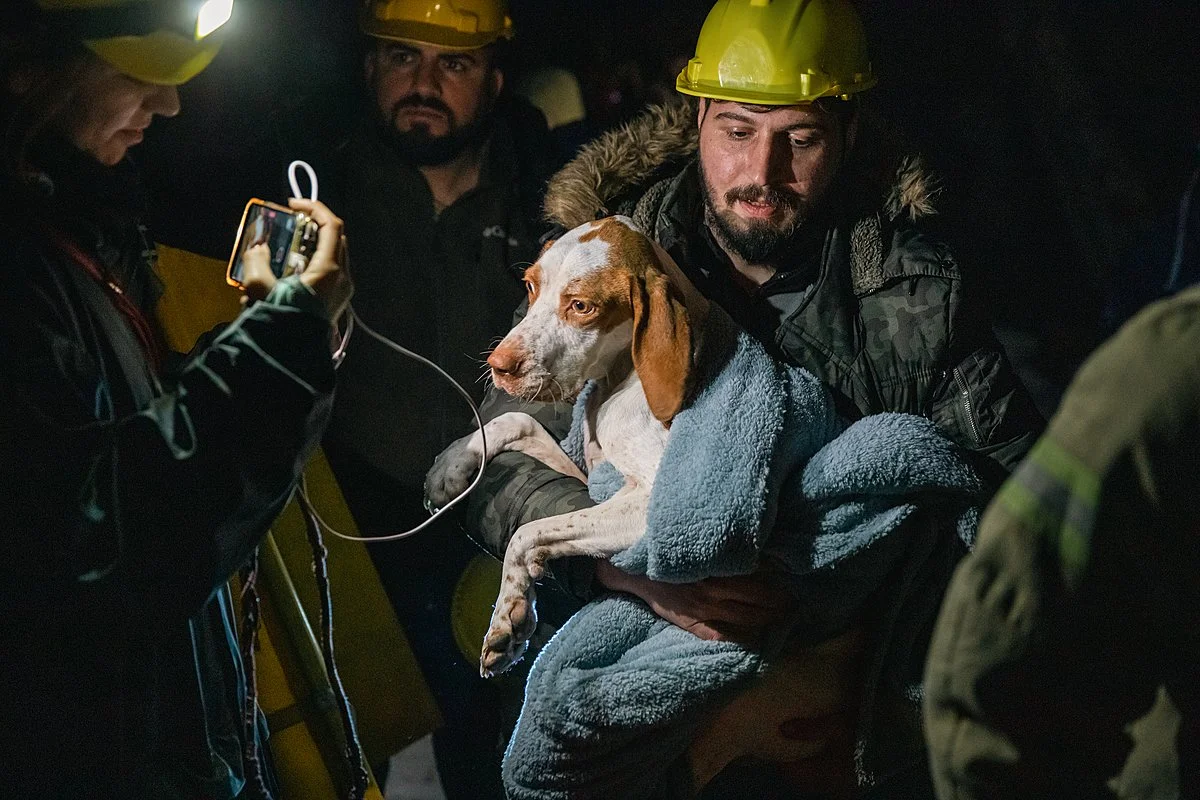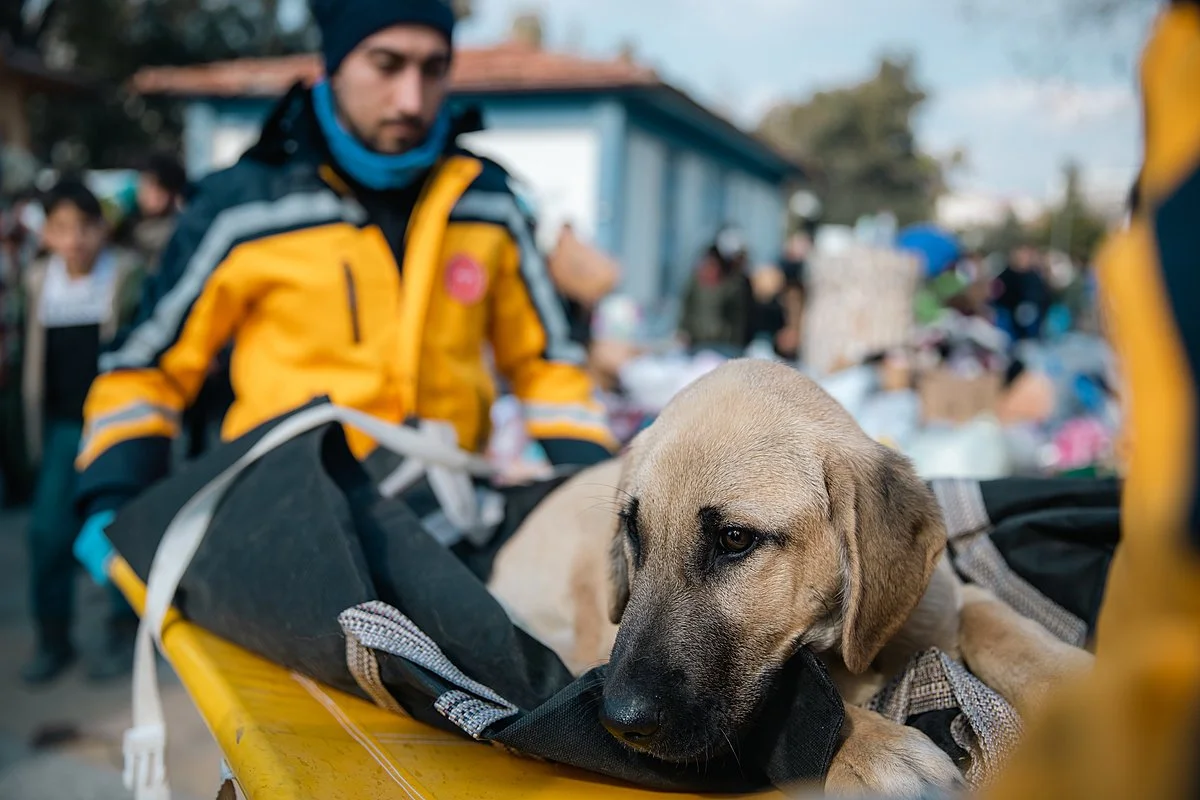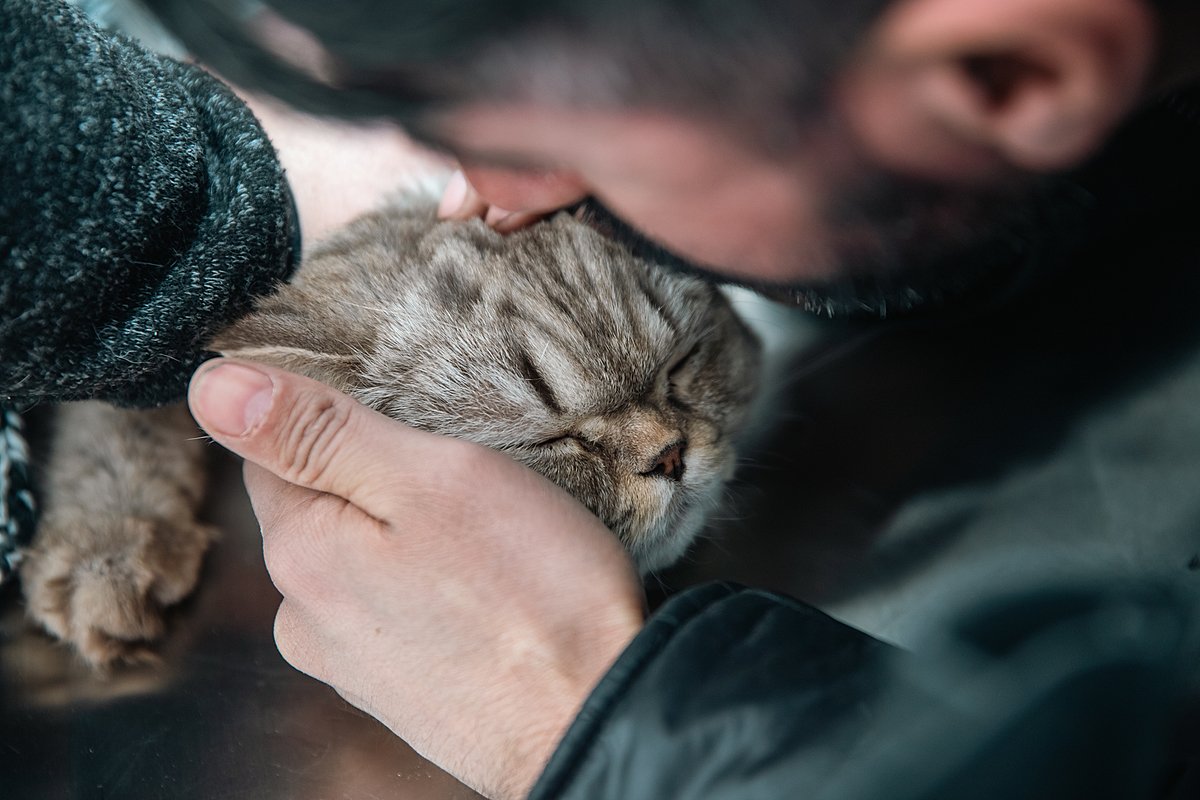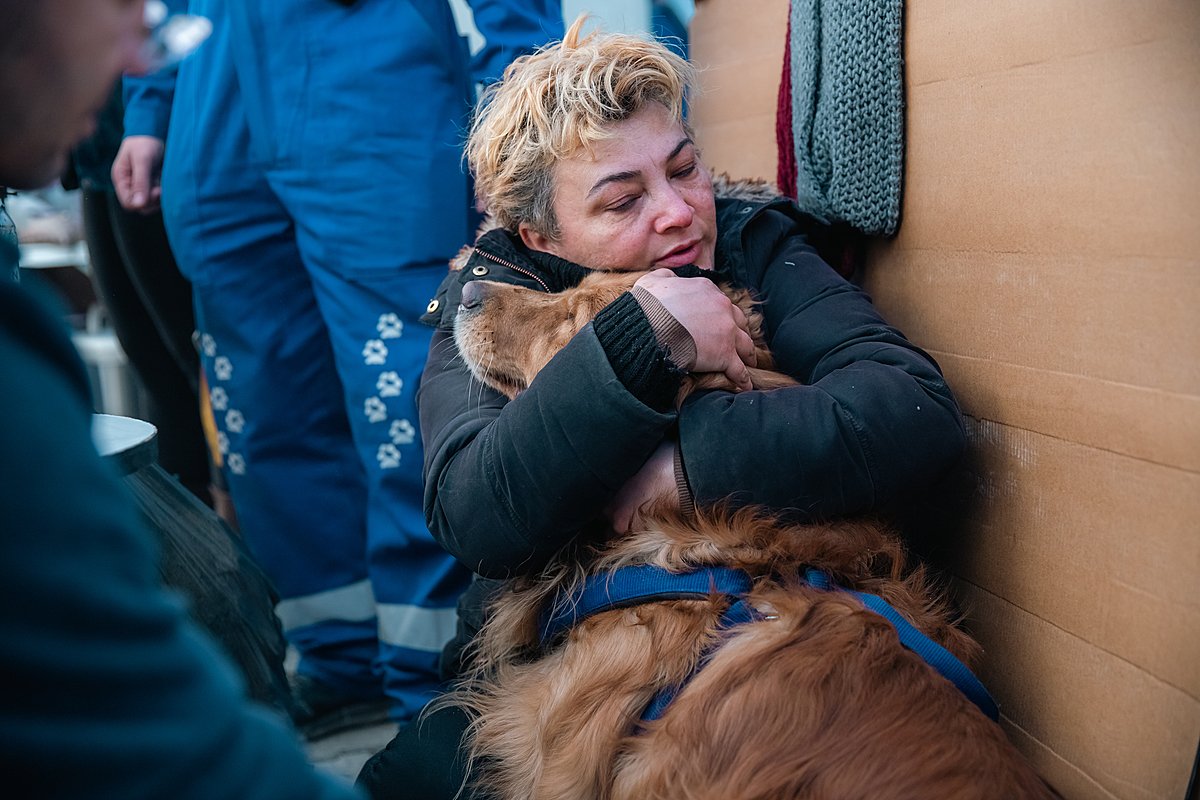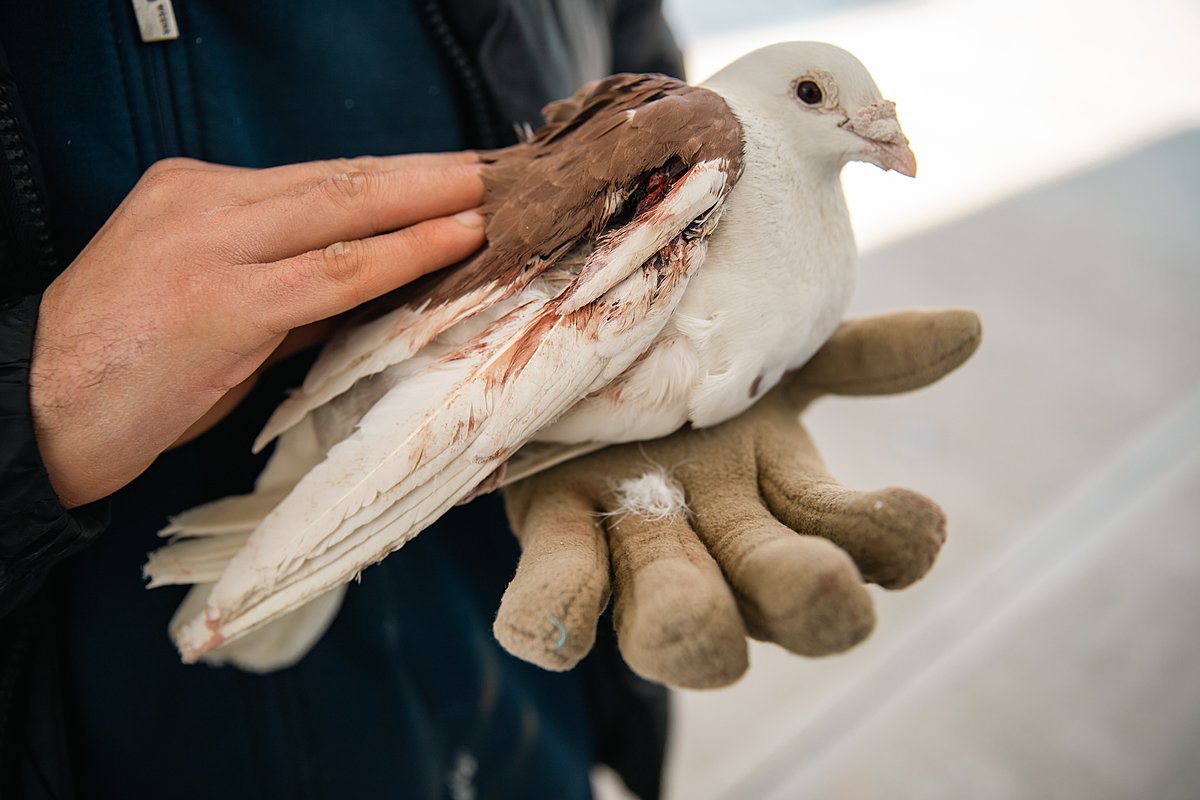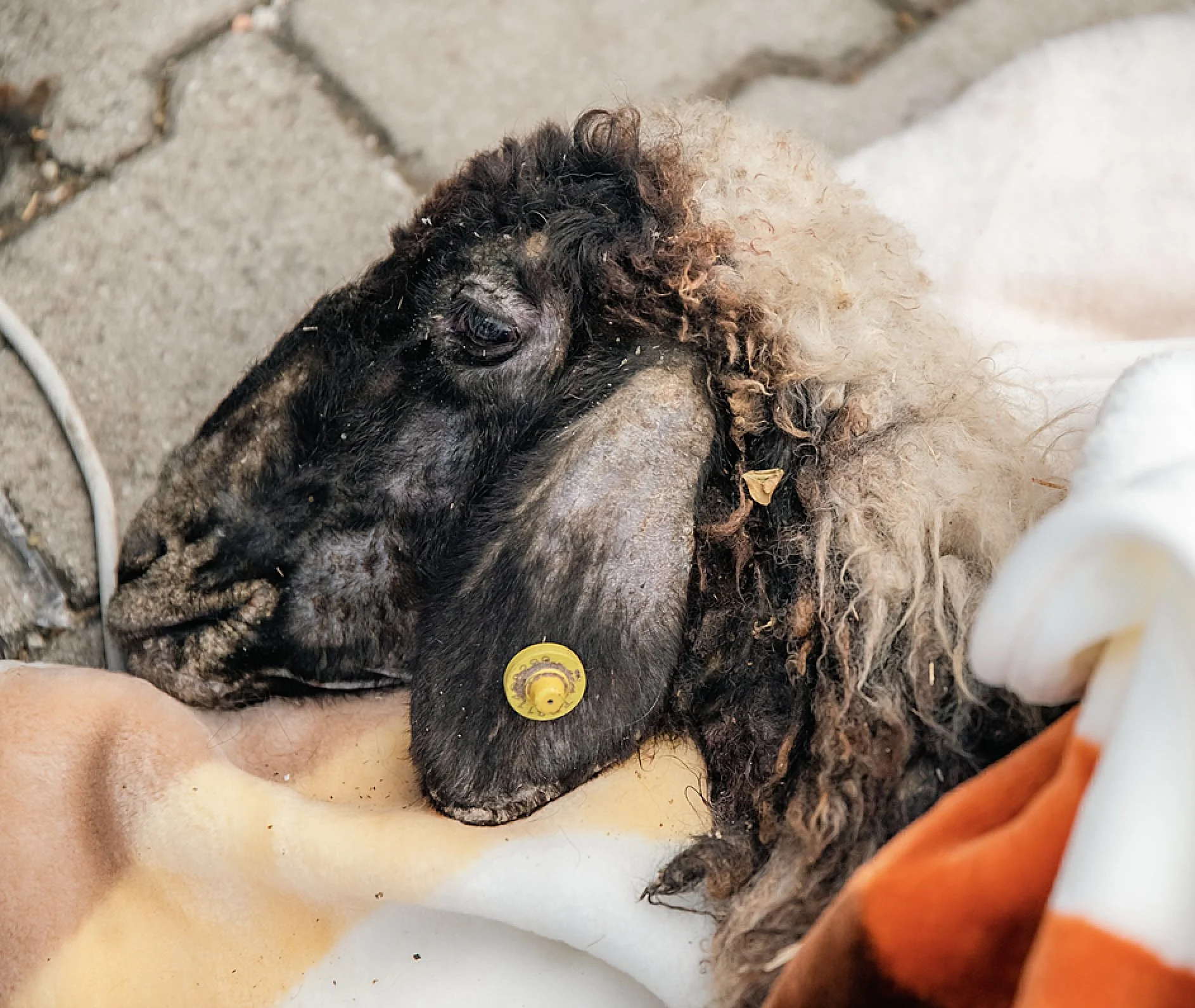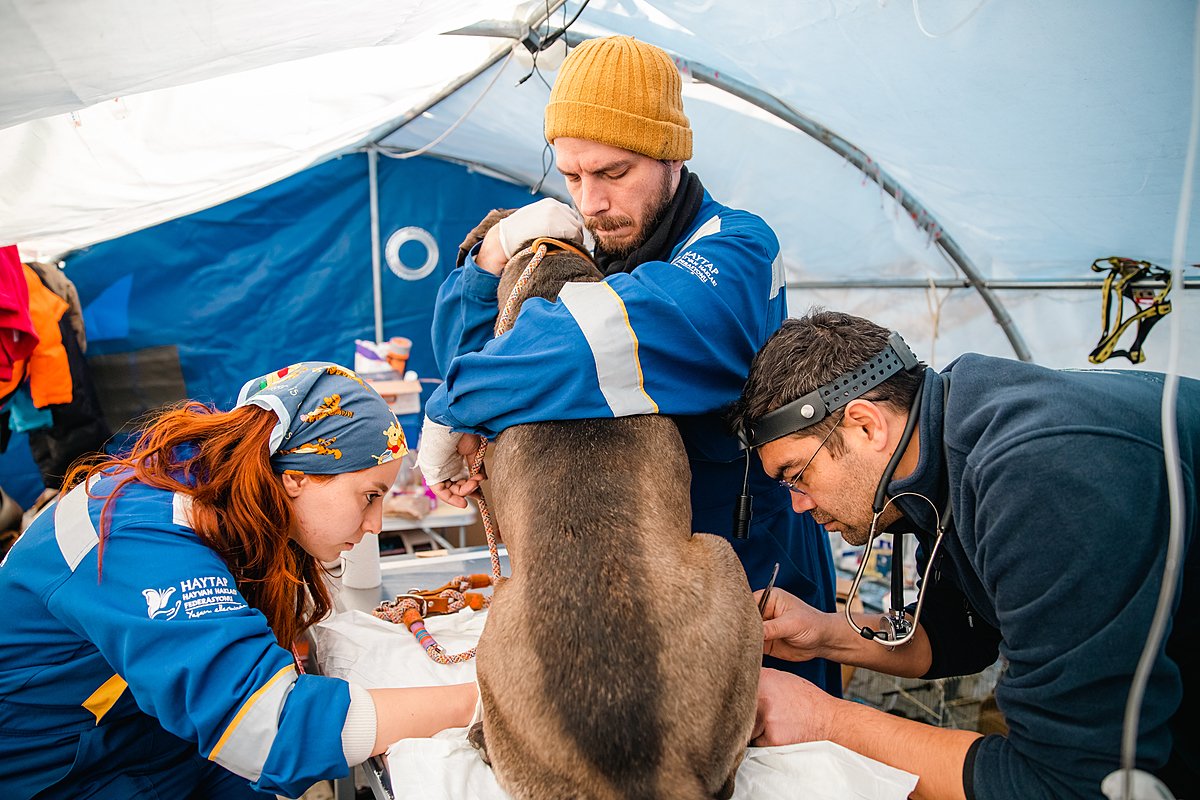HAYTAP animal rescue and members of the Istanbul fire department carry a dog from inside a damaged building. The team rescued the mother and her litter of puppies five days after the earthquake. Antakya, Hatay, Turkey. Photo: Ozan Acidere, We Animals Media
By Jessica Scott-Reid
Jessica is a Canadian writer, animal advocate and plant-based food expert. Her work appears regularly in media across Canada and the US.
Following the catastrophic earthquake in southern Turkey and northern Syria last month, tales of heroism, bravery and resilience emerged from the rubble and devastation. Stories of children, babies, brothers and mothers being rescued and reunited, flooded the media keeping hope and humanity alive. But humans were not the only ones on the receiving end of this heroism. Animals too, including pets, wildlife and farmed animals, have also been courageously pulled from the ruins, aided on roadsides, and transported to safety, showing that even in times of disaster, humans can and will come through for even the most vulnerable.
An injured dog is moved by stretcher to a rescue tent for further care in Antakya. Photo: Ozan Acidere, We Animals Media
Ozan Acidere, a contributor to photojournalism network We Animals Media, (WAM) was on the ground in Turkey after the earthquake to document the efforts of animal rescuers, capturing images both chilling and uplifting. According to the group:
As people fled for their lives, some companion animals were left behind in crumbling and condemned buildings. Those who escaped the worst of the damage wandered what was left of the streets in search of food, water and shelter. Farm animals including sheep and poultry were also among the animals found roaming the city in need of aid. Local and international rescue organizations were active in the most hard hit areas of Antakya, in the province of Hatay, Turkey rescuing animals, reuniting them with their families and providing medical care.
Acidere’s powerful images show groups such as Portuguese Animal Intervention and Rescue (IRA), providing food and water to stray dogs on the streets of Turkey, and coordinating massive search efforts for pets left behind in abandoned homes. Images also show local rescuers and healthcare workers with HAYTAP, Animal Rights Federation in Turkey, working to rescue and tend to cats, dogs, birds, turtles, chickens, sheep and more. The group remains on the scene today posting, via social media, updates on a non-stop flow of animals still being pulled from the rubble, still in need of care, or even just a hug.
Pet owners hugging their animals at a rescue tent. Photos: Ozan Acidere, We Animals Media
Angel’s Farm Sanctuary, the only all-animal sanctuary in the country, is another local group still working to save animals from the disaster. Working alongside H.A.R.K People & Animal Search and Rescue, the group has been going into ravaged areas to help injured animals and take those in need of extra care back to their facility in Izmir, Turkey. The farm is home to companion animals, farmed animals and exotic animals: 2,300 animals in total, of 104 different species. According to the group’s Patreon page, the monthly cost to operate the sanctuary is around 10,000 euros, which appears to have been pre-earthquake.
An injured pigeon is brought to an animal search and rescue team and a rescued sheep lies under a blanket at a rescue tent in Antakya. Photos: Ozan Acidere, We Animals Media
But it hasn’t only been trained rescuers risking their safety for animals in Turkey. Everyday citizens, already dealing with so much, have also been coming to the aid of animals in need. A particularly poignant WAM image shows a citizen delivering an injured pigeon to an animal search and rescue team, demonstrating that big or small, furry or feathered, every life is worthy of compassion, even in times of human tragedy.
HAYTAP rescue volunteers tend to a dog receiving medical treatment in Antakya. Photo: Ozan Acidere, We Animals Media
Perhaps the most notable stories though, of compassion towards animals in the wake of the quake, come from rebel-held Syria, where resources to aid both humans and animals are so scarce. As reported by The Washington Post, veterinarians and rescuers with Ernesto’s Sanctuary worked mostly by hand, physically digging out animals: pets and farmed animals alike. As Ernesto’s founder, Alessandra Abidin told The Post, “We have just our hands, our hearts and our eyes.” And, an empathy for those who may not be like us, but who are still able to suffer, to fear, and to want to live.

